3 Reasons the Tech Sector Could Rebound in 2023
April 6th, 2023 | Posted in InvestingIs the Technology Sector Poised for a Rebound in 2023?
Technology stocks had a rough 2022. Within the S&P 500, the technology sector declined by almost -30% last year, as compared to a roughly -19% decline for the broad index. One of the key culprits driving technology’s large relative decline in 2022: rising interest rates.
At the beginning of 2022, technology stock valuations were hovering around all-time highs, and interest rates were essentially anchored to the zero bound. But as readers know, inflation soared to 40-year highs, which prompted the Federal Reserve to raise rates quickly. Higher interest rates discount the value of future earnings, which made ‘expensive’ technology companies with longer-term cash flows look less attractive to, say, value companies.1
Higher interest rates also make borrowing more expensive, which can compromise future profits for growth companies that rely on borrowing to fund growth and expansion. As investors become less optimistic about the future growth potential of a company, price pressures can follow. It’s also true that when interest rates rise, fixed-income investments such as bonds can become more attractive to investors, especially if the outlook for economic growth is mixed.
Positioning your investments for a volatile market.
“Don’t put all your eggs in one basket.” It’s a classic proverb and for good reasons. Diversifying your portfolio is one the most basic pieces of investing advice—but unfortunately, it’s also advice that too many investors ignore.
Zacks Advantage would like to help you ensure that your investments are properly diversified so that you can avoid the risks of over-concentration in any particular asset class. That’s why we’re offering our free guide, Is Your Investment Portfolio Actually Well-Diversified? 2
Act now to get the basics of diversification, including:
- Why the average investor’s returns lag behind almost every investment category
- 4 myths of a diversified portfolio
- How to create a truly well-diversified portfolio
Learn more about how you can benefit from our actively-managed robo advisor with our free guide, A Better Way Forward: Actively Managing Passive Index Funds.2
Learn more with our free guide, Is Your Investment Portfolio Actually Well-Diversified? 2
Fast forward to 2023, and technology stocks have sold off sharply from highs, pushing valuations back down to levels historically consistent with 4-5% rates on the 10- and 30-year U.S. Treasury bonds. In other words, technology stocks have reset to what we might consider a fresh starting point.
The question then becomes: what is the outlook for the technology sector from here, and what’s driving optimism in the space? We have three factors investors should watch:
1. Profit Margins Could Strengthen in 2023
Following a challenging year for earnings and stock performance in 2022, tech CEOs have sharpened their focus on managing costs. Many early-stage companies had grown accustomed to abundant and easily accessible funding in the months and years after the pandemic, which dried up in 2022. Now, we’re seeing more focus on cost-cutting and a focus on maintaining and growing profit margins versus ‘growth at all costs.’ Case in point: technology companies accounted for a lion’s share of layoff announcements last year.
A high-profile example of a company prioritizing margins over growth is Meta (formerly known as Facebook). CEO and founder Mark Zuckerberg has declared 2023 the “Year of Efficiency” for Meta, which has been followed by tens of thousands of layoffs and a scrapping of 5,000 job openings. Over-hiring in the wake of the pandemic brought Meta’s annual revenue per employee to $1.35 million, an -18% decline from 2021. Meta’s goal in 2023 is to reach a record $1.85 million per employee level.
2. New Innovation Could Supercharge Growth
The release of Open AI’s “Chat GPT” tool has made waves in the media and among industry stakeholders, with many declaring that “generative AI” tools could be as impactful to future economic growth as the internet in the 1990s. These AI tools can write text, draw pictures, write code, and more – all at a level equal to or greater than most humans.
The implications for economic growth and the labor market are many, but here are five areas where AI could have the biggest impact on the economy:
- Automation of Routine Tasks: AI tools can automate routine tasks, allowing workers to focus on more creative and strategic tasks. This can increase productivity and efficiency, leading to cost savings for businesses and the creation of new jobs that require higher-level skills.
- Optimization of Business Processes: AI can analyze vast amounts of data to identify inefficiencies in business processes, allowing companies to streamline their operations and reduce costs. This optimization can lead to new job opportunities, such as data analysts, process improvement specialists, and automation engineers.
- Personalization of Customer Experience: AI can analyze customer data to provide personalized recommendations and experiences, increasing customer satisfaction and loyalty. This can lead to the creation of new jobs in customer service and marketing, as businesses strive to provide a more personalized experience.
- Predictive Analytics: AI can analyze data to identify patterns and make predictions about future trends. This can help businesses make better decisions about investments, production, and marketing, leading to increased profitability and the creation of new jobs in data analysis and prediction modeling.
- Development of New Products and Services: AI can help businesses develop new products and services by analyzing customer data and identifying unmet needs. This can lead to the creation of new jobs in product development, marketing, and sales.
Overall, AI can provide significant benefits to businesses and the economy by improving efficiency, reducing costs, and creating new job opportunities. With new economic growth comes investment opportunities.
3. Interest Rates Appear Likely to Peak
If rising interest rates had a negative impact on growth stocks and in particular, technology stocks, then it follows that peaking (and potentially falling) interest rates could function as tailwinds.
We’ve seen this pattern play out so far in 2023, with technology stocks rallying as issues in the banking sector made headlines. The basic thesis was that investors were betting that problems in the banking sector would impact economic growth to the point that the Fed may not need to raise rates much more to cool the economy and inflation. A belief that interest rates could peak in 2023, and perhaps even fall, should continue to drive enthusiasm for tech stocks.
Bottom Line for Investors
Leadership changes hands in the market often, and we’re coming off a year where technology stocks were among the worst performers. Cyclicality alone could make a good case for tech stocks looking ahead, but there are also the potential tailwinds of cost-cutting, profit margin focus, growth runway driven by AI, and peaking interest rates that arguably are working in tech’s favor this year.
Most investors can get where they need to go over the long term by owning a diversified portfolio of stocks and/or ETFs. In fact, “diversify your portfolio” is one the most basic pieces of investing advice. Sadly, in our experience, many investors still put all (or most) of their eggs in one basket.
At Zacks Advantage, we strive to help every investor properly allocate their assets. In fact, we’ve put together a helpful guide to help you understand the basics of portfolio diversification, including:
- 4 myths of a properly diversified portfolio
- Why the average investor’s returns trail almost every other investment category
- How to create a truly well-diversified portfolio
Get our free guide, Is Your Investment Portfolio Actually Well-Diversified? 3, to learn how to create a truly diversified portfolio.
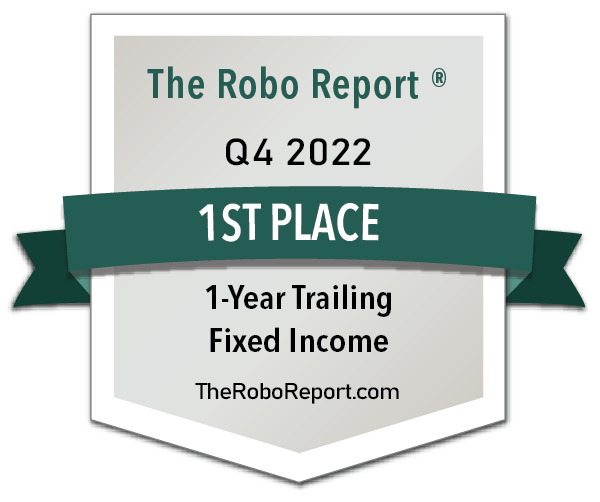
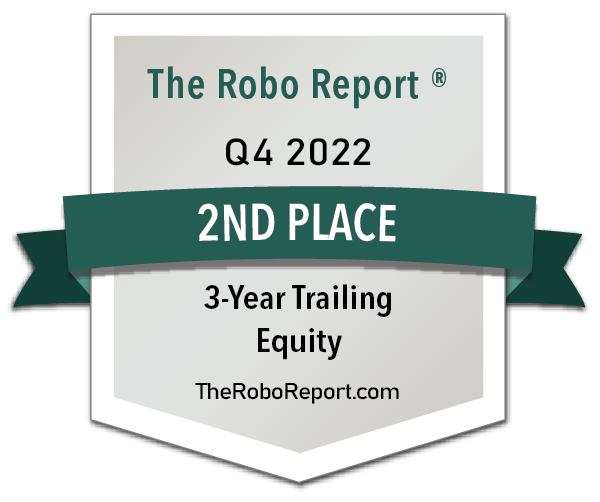
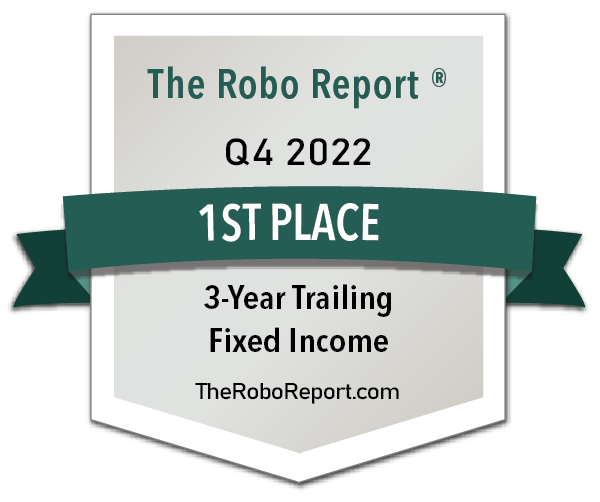

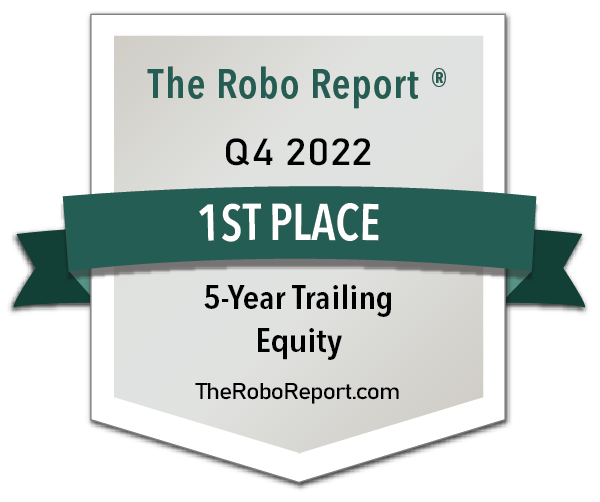
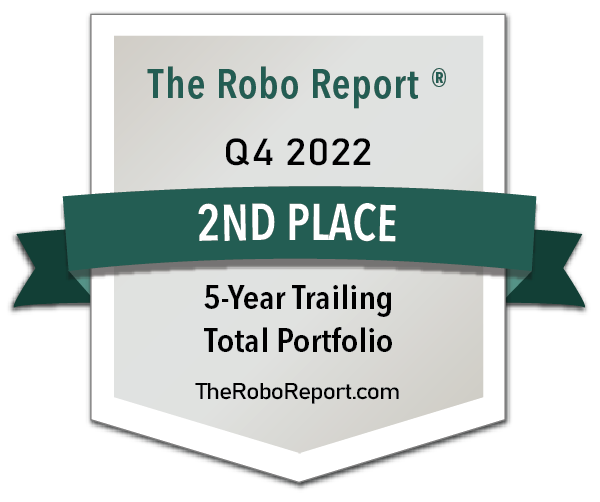
© 2023 Zacks Advantage | Privacy Policy | Unsubscribe
2 Zacks Investment Management may amend or rescind the A Better Way Forward: Actively Managing Passive Index Funds guide offer for any reason and at Zacks Investment Management’s discretion.
3 Zacks Investment Management may amend or rescind the A Better Way Forward: Actively Managing Passive Index Funds guide offer for any reason and at Zacks Investment Management’s discretion.
DISCLOSURE
Past performance is no guarantee of future results. Inherent in any investment is the potential for loss.
Zacks Advantage is a service offered by Zacks Investment Management, a wholly-owned subsidiary of Zacks Investment Research.
Zacks Investment Management, Inc. is a wholly-owned subsidiary of Zacks Investment Research. Zacks Investment Management is an independent Registered Investment Advisory firm and acts as an investment manager for individuals and institutions. Zacks Investment Research is a provider of earnings data and other financial data to institutions and to individuals.
This material is being provided for informational purposes only and nothing herein constitutes investment, legal, accounting or tax advice, or a recommendation to buy, sell or hold a security. Do not act or rely upon the information and advice given in this publication without seeking the services of competent and professional legal, tax, or accounting counsel. Publication and distribution of this article is not intended to create, and the information contained herein does not constitute, an attorney-client relationship. No recommendation or advice is being given as to whether any investment or strategy is suitable for a particular investor. It should not be assumed that any investments in securities, companies, sectors or markets identified and described were or will be profitable. All information is current as of the date of herein and is subject to change without notice. Any views or opinions expressed may not reflect those of the firm as a whole.
Any projections, targets, or estimates in this report are forward looking statements and are based on the firm’s research, analysis, and assumptions. Due to rapidly changing market conditions and the complexity of investment decisions, supplemental information and other sources may be required to make informed investment decisions based on your individual investment objectives and suitability specifications. All expressions of opinions are subject to change without notice. Clients should seek financial advice regarding the appropriateness of investing in any security or investment strategy discussed in this presentation.
Certain economic and market information contained herein has been obtained from published sources prepared by other parties. Zacks Investment Management does not assume any responsibility for the accuracy or completeness of such information. Further, no third party has assumed responsibility for independently verifying the information contained herein and accordingly no such persons make any representations with respect to the accuracy, completeness or reasonableness of the information provided herein. Unless otherwise indicated, market analysis and conclusions are based upon opinions or assumptions that Zacks Investment Management considers to be reasonable. Any investment inherently involves a high degree of risk, beyond any specific risks discussed herein.
The S&P 500 Index is a well-known, unmanaged index of the prices of 500 large-company common stocks, mainly blue-chip stocks, selected by Standard & Poor’s. The S&P 500 Index assumes reinvestment of dividends but does not reflect advisory fees. The volatility of the benchmark may be materially different from the individual performance obtained by a specific investor. An investor cannot invest directly in an index.
Robo investments are subject to some unique risks, including, but not limited to, the fact that investment decisions are made by algorithms based on investors’ answers to questions, there is a lack of human involvement, and there is the possibility that the software may not always perform exactly as intended or disclosed. Such investment programs are only suitable for investors who can bear the risk of a complete loss of their investments.
The S&P GSCI is the first major investable commodity index. It is one of the most widely recognized benchmarks that is broad-based and production weighted to represent the global commodity market beta. The index is designed to be investable by including the most liquid commodity futures, and provides diversification with low correlations to other asset classes. The volatility of the benchmark may be materially different from the individual performance obtained by a specific investor. An investor cannot invest directly in an index.
The NASDAQ-100 Index includes 100 of the largest domestic and international non-financial companies listed on The NASDAQ Stock Market based on market capitalization. The Index reflects companies across major industry groups including computer hardware and software, telecommunications, retail/wholesale trade and biotechnology. Index composition is reviewed on an annual basis in December. An investor cannot invest directly in an index. The volatility of the benchmark may be materially different from the individual performance obtained by a specific investor.
Zacks Investment Management 10 S. Riverside Plaza, Suite 1600 Chicago IL 60606-3830
Past performance is no guarantee of future results. Inherent in any investment is the potential for loss
Zacks Advantage is a service offered by Zacks Investment Management, a wholly-owned subsidiary of Zacks Investment Research. Zacks Investment Management is an independent Registered Investment Advisory firm and acts as an investment manager for individuals and institutions. All material in presented on this page is for informational purposes only and no recommendation or advice is being given as to whether any investment or strategy is suitable for a particular investor. Nothing herein constitutes investment, legal, accounting or tax advice. The information contained herein has been obtained from sources believed to be reliable but we do not guarantee accuracy or completeness. Zacks Investment Management, Inc. is not engaged in rendering legal, tax, accounting or other professional services. Publication and distribution of this article is not intended to create, and the information contained herein does not constitute, an attorney- client relationship. Do not act or rely upon the information and advice given in this publication without seeking the services of competent and professional legal, tax, or accounting counsel.

